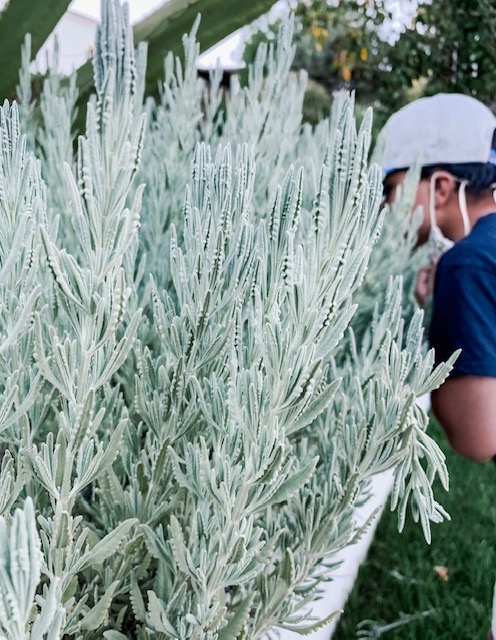
TEACH CHILDREN HOW TO BE SUSTAINABLE DINERS
You’d think food choices and dining habits would only affect your health or your family’s health. When in fact, the food you choose to eat and your dining practices affect practically the entire planet!!
I’m sure most of us crave a fat, juicy burger from time to time, and as adults, guilt would gnaw at the back of our minds for devouring an all-time favourite burger repeatedly because we know consuming this type of food isn’t the optimal diet. However, your health is just a tiny part of the number of adverse effects that take place when eating a seemingly harmless burger.
A pound of beef for a burger patty, for example, uses about 2,400 gallons of water in production. Animal agriculture is one of the leading causes of environmental devastation. Livestock emits more greenhouse gases vs the combined carbon emitted by the whole world’s transportation. So, imagine how much carbon footprint we have left in eating just a single burger!! Ever thought about how much you have contributed to the degradation of the environment all those years? And how much natural resources have we wasted every time we overeat at a familiar fast-food joint? To make matters worse, have you thought about the amount of leftover food we have tossed in the bin after stuffing our faces with greasy take-outs?
In general, we hardly know the link between food waste and climate change. We are especially not aware of the connection between food waste and global hunger. Sad but true, the business model of industrializing our food to a mass scale is an easy way for overindulgence, which harm us eventually and our planet.
In addition, approximately $1 Trillion worth of food goes to waste every year, which can help feed around 2 billion people. World Food Day is observed every year on the 16th of October. The United Nations formed it to address global hunger, create awareness, and aid those suffering from malnutrition and starvation.
While the global population continue to grow, this means more mouths to feed. UN predicts that the world’s population will reach 8.5 billion by 2030. For this reason, eating sustainably and mindfully is one thing we can do to help address global hunger. It’s never too late to start applying sustainable food practices, and the ideal way is to teach your children to be sustainable diners at a young age.
Here are some helpful tips on how you can start teaching sustainable food practices to your little ones.
GROW YOUR FOOD
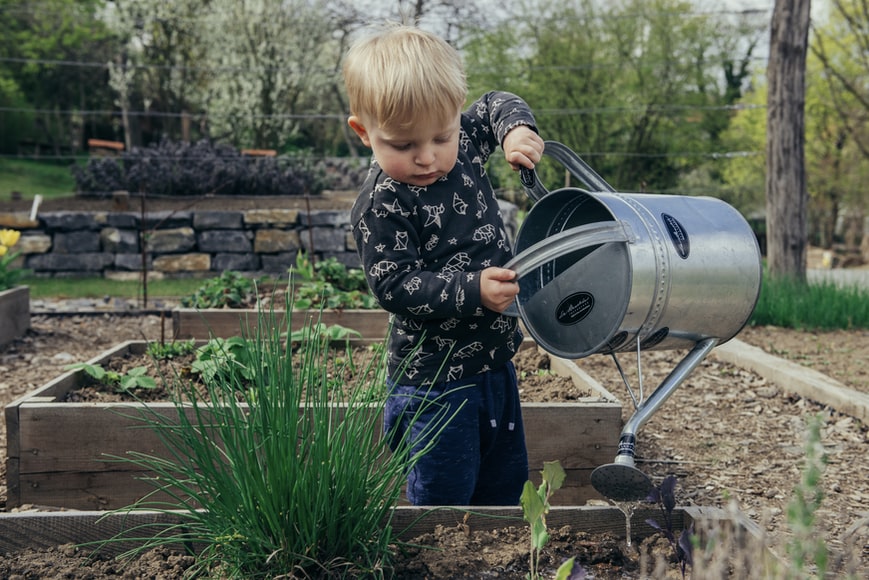
Most of us do not know the origins of our food. Children would most likely guess it came from the supermarkets.
One way to promote sustainable food production and consumption is to grow your own. Having a small vegetable patch in your garden where you can grow herbs or vegetables is one way to help better understand food generation. It will allow you and your children to talk about our farmers and what they do for us. Get your kids to plant some vegetables and when it’s time, let them harvest this fresh produce and show them a healthy way of cooking them.
Teaching them this kind of environmental responsibility will lead to better habit formation, and through this practice, we can contribute to tackling food waste and global hunger.
EAT LESS MEAT
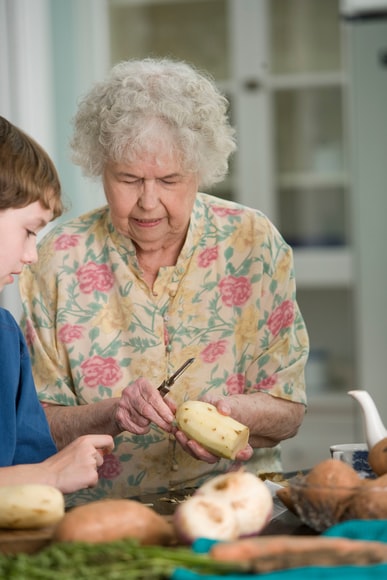
Photo: Unsplash 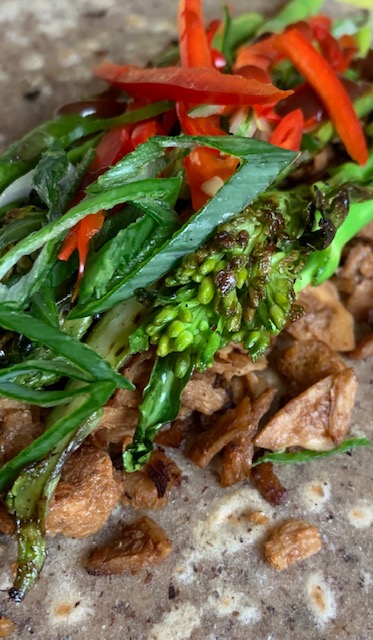
Linda McCartney Hoisin vegan duck wrap,
family favourite!
Photo: Anna Santegoeds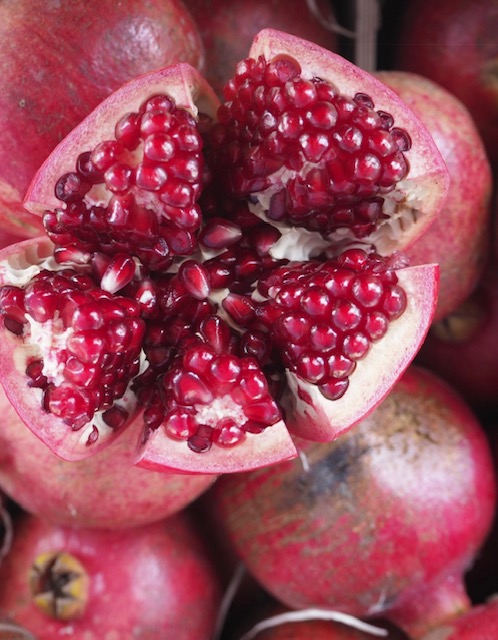
Pomegranate Market stall display
Photo: Anna Santegoeds
As mentioned earlier, animal agriculture is one of the top climate offenders. When we reduce meat consumption, it means less animal production, reduced wasted resources and energy.
Plus, the protein that we obtain from meat can also be gained and sourced from plants! So, opting for a plant-based diet is a better option for everybody – your health, the animals and the planet.
Click here for easy vegan recipes that kids will love to eat and even enjoy cooking.
You can also follow Paul McCartney and daughters’ Meat Free Monday on Instagram or their website for recipes and inspiration to eat less meat.
COMPOST FOOD WASTE
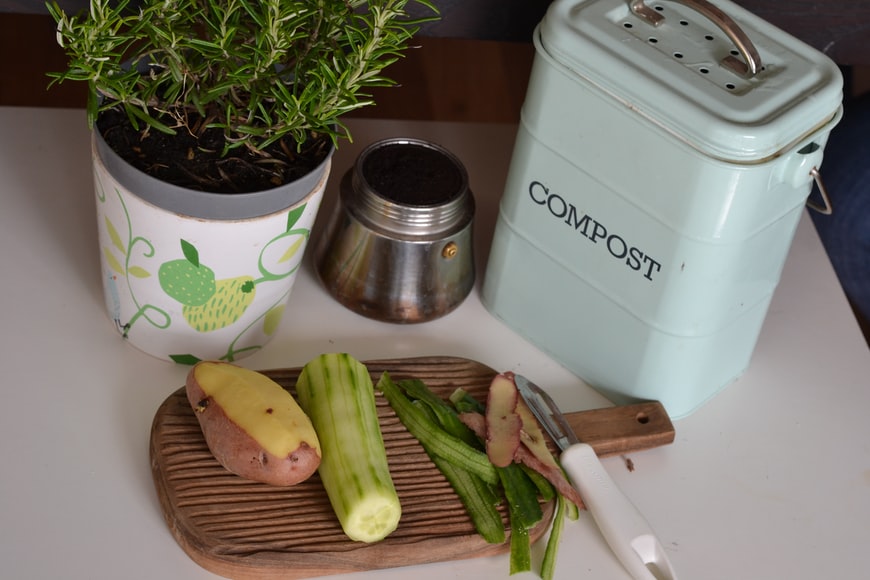
Not all kids have a hearty appetite. Even when we educate them about global hunger, leftover food is sometimes unavoidable.
However, food waste contributes to the rapidly escalating effects of climate change. Food dumped in the garbage bin ends up in landfills, and the rotting food wasted away in landfills produces methane which is a greenhouse gas.
One way to save leftover food is to use them as garden compost. Composting is nature’s way of recycling, and when we compost, we bring nutrients back to the soil. When our soil is healthy, its essential role of sequestering carbon will be more effective; thus, the fight against climate change will be more successful.
Check out this guide to Bokashi composting so your kids can have an easy step by step tutorial for putting leftover food to good use.
Finally, the next time you crave junk food, keep in mind that it’s not just about you. When you eat right and sustainably, you contribute positively to saving the world and maintaining a healthy lifestyle.
